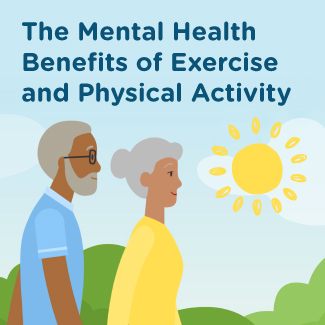Benefits of Physical Activity on Mental Health
Physical activity has long been recognized as a vital component of a healthy lifestyle. While its positive impact on physical health is well-documented, its benefits extend beyond the physical realm. In this article, we explore the profound effects of regular physical activity on mental health and well-being.
Reduced Risk of Depression and Anxiety
Engaging in regular physical activity has been shown to significantly reduce the risk of developing depression and anxiety. Exercise stimulates the release of endorphins, which are natural mood boosters. These feel-good chemicals help alleviate symptoms of depression and anxiety, promoting a more positive mental state.
Improved Cognitive Function
Physical activity not only benefits mental health but also enhances cognitive function. Studies have demonstrated that regular exercise improves memory, attention span, and overall cognitive performance. It increases blood flow to the brain, promoting the growth of new neurons and enhancing brain connectivity.
Stress Reduction
In today’s fast-paced world, stress has become an inevitable part of our lives. Regular physical activity acts as a powerful stress reliever. Exercise helps reduce the levels of stress hormones, such as cortisol while boosting the production of endorphins. This combination helps combat stress, leading to improved mental well-being.
Enhanced Self-Esteem and Body Image
Engaging in physical activity can have a positive impact on self-esteem and body image. Regular exercise helps individuals feel more confident and satisfied with their bodies. It promotes a sense of accomplishment and self-worth, leading to improved mental well-being.
Increased Social Interaction
Participating in physical activities often involves joining sports teams, fitness classes, or exercise groups. This provides opportunities for social interaction and fosters a sense of belonging. Socializing during physical activity can reduce feelings of loneliness and isolation, contributing to better mental health.
Improved Sleep Quality
Physical activity has been shown to improve sleep quality, which is crucial for maintaining good mental health. Regular exercise helps regulate sleep patterns and promotes better sleep duration and quality. By reducing insomnia and promoting restful sleep, physical activity contributes to overall mental well-being.

The benefits of physical activity on mental health are undeniable. Engaging in regular exercise not only improves physical fitness but also has a profound positive impact on mental well-being. From reducing the risk of depression and anxiety to enhancing cognitive function and improving sleep quality, physical activity is a powerful tool for maintaining optimal mental health. Incorporate physical activity into your daily routine and experience the transformative benefits it can bring to your mind, body, and soul.
Frequently Asked Questions
1. How does physical activity impact mental health?
Regular physical activity has been shown to improve mood, reduce symptoms of anxiety and depression, boost self-esteem, and enhance overall mental well-being.
2. What types of physical activity are beneficial for mental health?
Any form of exercise that gets your heart rate up and makes you break a sweat can be beneficial for mental health. This includes activities like walking, jogging, swimming, cycling, dancing, and playing sports.
3. How often should I engage in physical activity to experience mental health benefits?
Experts recommend at least 150 minutes of moderate-intensity aerobic activity or 75 minutes of vigorous-intensity aerobic activity per week for mental health benefits. It is best to spread out these activities throughout the week.
4. Can physical activity help reduce stress?
Yes, physical activity can help reduce stress levels. Exercise releases endorphins, which are natural mood-boosting chemicals in the brain, and promotes relaxation.
5. Does physical activity improve cognitive function?
Yes, research suggests that regular physical activity can improve cognitive function, including memory, attention, and problem-solving skills.
6. Are there any specific mental health conditions that physical activity can help with?
Physical activity is beneficial for various mental health conditions, such as depression, anxiety disorders, ADHD, and stress-related disorders.
7. Can the physical activity be used as a part of treatment for mental health disorders?
Yes, physical activity is often recommended as a complementary treatment for mental health disorders. It can be used alongside therapy and medication to improve symptoms and overall well-being.
8. How long does it take to notice the mental health benefits of physical activity?
Some people may start experiencing the benefits of physical activity on mental health within a few weeks, while others may take longer. Consistency and regularity are key factors in achieving positive outcomes.
9. Are there any age restrictions for reaping the mental health benefits of physical activity?
No, physical activity can benefit individuals of all ages, including children, adolescents, adults, and older adults. It is important to choose activities that are appropriate for your age and fitness level.
10. Can physical activity help improve sleep quality?
Yes, engaging in regular physical activity can help improve sleep quality. It can help regulate sleep patterns and promote a deeper, more restful sleep.




